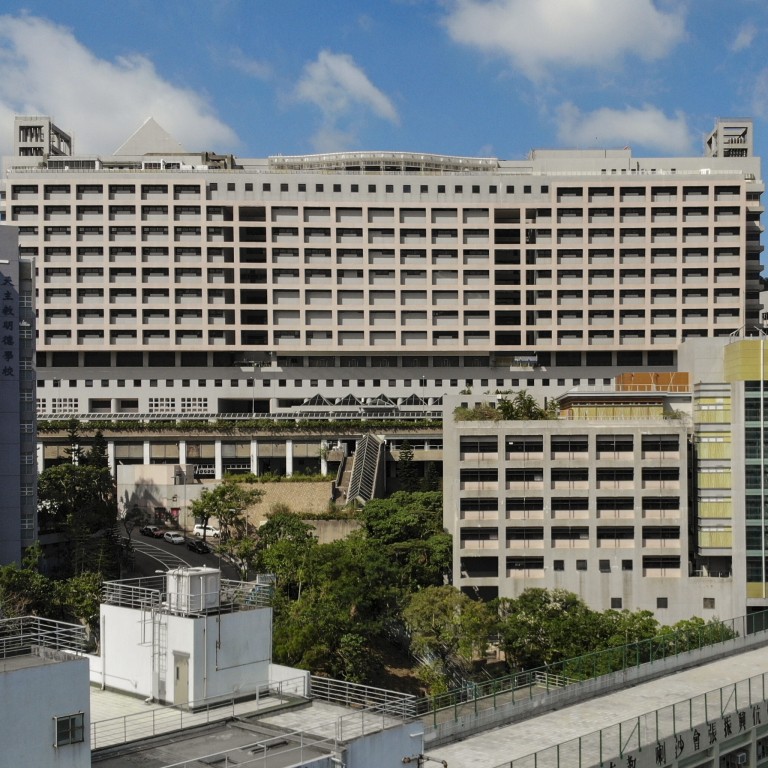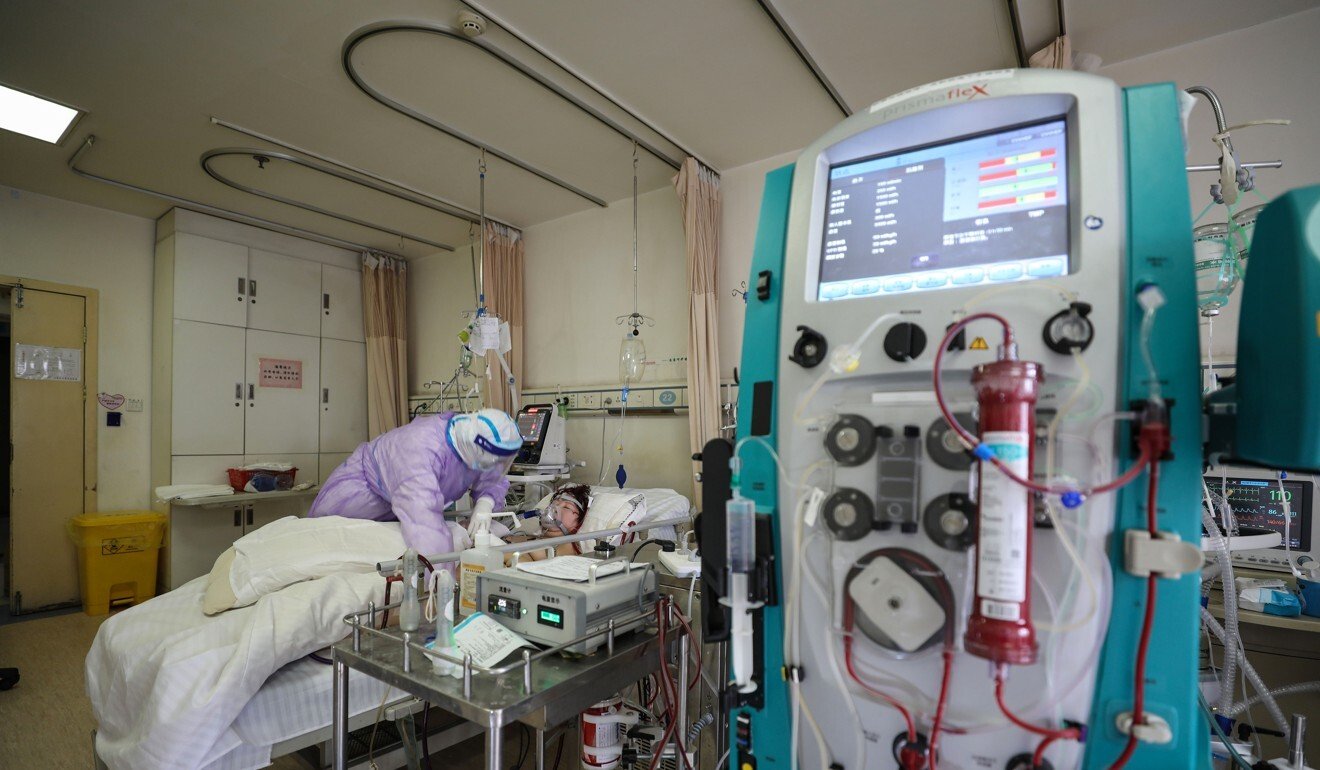
Coronavirus: Hong Kong uses artificial lungs to treat Covid-19 patient for first time
- Life-support device fixed to critically ill woman, 75, who had travelled to North America
- Only one local infection among 16 new cases taking Hong Kong total to 989 on Friday
Artificial lungs have been fitted to a coronavirus patient for the first time in Hong Kong, health officials said on Friday, as 16 new infections took the city total to 989.
The prosthetic device – which provided life support to patients with respiratory failure and was also known as extracorporeal membrane oxygenation (ECMO) – was used for a critically ill 75-year-old woman whose condition worsened while in intensive care, the authorities said.
Hongkongers hit scenic spots in the thousands
“She [the patient] relied on ventilators to assist breathing but her condition worsened,” said Dr Sara Ho Yuen-ha, the Hospital Authority official in charge of patient safety. “Doctors today decided to use ECMO as part of the treatment. The operation [of the device] will be monitored by an expert panel.”
Ho said public hospitals had 20 of the devices available, which provided oxygen and removed carbon dioxide from the blood.
The elderly patient, who is being treated at Pamela Youde Nethersole Eastern Hospital in Chai Wan, travelled to the United States and Canada in February and showed Covid-19 symptoms from March 24.
Professor David Hui Shu-cheong, a respiratory medicine expert at Chinese University, said artificial lungs were a temporary measure to help provide oxygen to patients suffering from respiratory failure due to serious pneumonia, adding they were used when mechanical ventilation was insufficient.
“It will give time for the lungs to recover gradually,” Hui said, adding the treatment had been used on Covid-19 patients in mainland China and Singapore.
The 20 ECMO devices available to the city were “more than enough because very few cases would need them”, Hui said, adding only 25 patients had been admitted to intensive care units out of more than 900 cases in the city, most of whom had recovered after intubation and other interventions.

Hong Kong’s unprecedented deployment of ECMO for a coronavirus patient came as the total number of infected in the city edged closer to the 1,000-mark.
The toll at the start of the long Easter weekend continued the recent trend of small-scale increases and marked the seventh day in a row the daily figure was below 30.
Dr Chuang Shuk-kwan, the head of the communicable disease branch of the Centre for Health Protection, told a press conference that Friday was a rare day when all sources of the 16 new infections could be traced.
Fifteen of the confirmed cases had travel history, while the only local infection was of a 28-year-old man and related to his girlfriend’s visit to the All Night Long bar in Tsim Sha Tsui, Chuang said.
But Chuang said despite the sustained run of relatively few new cases, it would be too early to conclude the outbreak could be successfully contained.
“For many previously confirmed cases, we still cannot trace their sources of infection. But we just become less worried as there is no new spread of the disease in the community,” she said.
“We still rely on the surveillance system and the public to stay vigilant.”
The worsening condition of a 46-year-old police sergeant with Covid-19, who was the fourth officer in Hong Kong known to have been infected, was also raised at the press briefing.
The critically ill officer, who was involved in a crowd-dispersal operation in Prince Edward on March 31, was admitted to the intensive care unit of Queen Elizabeth Hospital in Yau Ma Tei on Thursday after his breathing deteriorated.
Ho said: “His response after being administered highly-concentrated oxygen was unsatisfactory. We deployed a ventilator to assist his breathing and also antiviral drugs would help him recover.”
The health chief also warned that supplies of N95 respirators would only last two months, with exports from the United States and some European countries banned amid the pandemic, adding that authorities would ramp up efforts to increase the dwindling stockpile of 2.1 million.
On Thursday, 13 people were confirmed as infected, which was the lowest count for three weeks, leading medical experts to say the Covid-19 situation in Hong Kong was improving.

